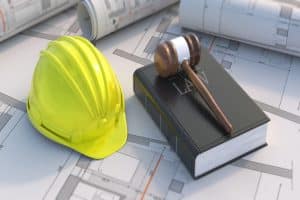
Understanding Construction Disputes
Common Causes of Disputes
Construction disputes can stem from various issues, including:
-
- Breach of Contract: When one party fails to fulfill their obligations as outlined in the construction contract, it can lead to significant disagreements. This might involve delays in project completion, substandard work, or failure to pay for services rendered.
- Change Orders: As projects evolve, changes may be necessary. Disputes often arise regarding the scope and cost of these changes, particularly if they were not clearly defined in the original contract.
- Defective Work: Construction defects can manifest long after a project is completed, leading to disputes over liability and repair costs. This can include structural issues, water damage, or code violations.
- Payment Issues: Disagreements over payment can occur when property owners withhold payment due to dissatisfaction with the work or when contractors fail to pay subcontractors.
The Impact of Disputes
Disputes can have far-reaching consequences, including:
-
- Financial Strain: Delays and legal fees can escalate costs significantly, impacting the profitability of construction projects.
- Reputation Damage: Prolonged disputes can harm the reputations of contractors and subcontractors, making it difficult to secure future work.
- Project Delays: Disputes can halt progress, leading to missed deadlines and potential penalties.
The Litigation Process
Initial Steps in Litigation
When a dispute escalates to litigation, the following steps are typically taken:
-
- Consultation with Legal Counsel: Engaging an attorney with experience in construction law is critical. They can provide guidance on the merits of the case and potential outcomes.
- Review of Contractual Obligations: The next step involves a thorough examination of the contract to determine the rights and responsibilities of each party. This helps in identifying breaches and potential remedies.
- Gathering Evidence: Collecting relevant documentation, including contracts, correspondence, and photographs of the work, is essential. This evidence will support your case in court.
Filing a Lawsuit
If informal discussions do not lead to a resolution, the aggrieved party may file a lawsuit. This process involves:
-
- Drafting the Complaint: The complaint outlines the plaintiff’s claims against the defendant, including the basis for the lawsuit and the relief sought.
- Serving the Defendant: The defendant must be formally notified of the lawsuit, providing them the opportunity to respond.
- Discovery Phase: Both parties engage in discovery, exchanging information and evidence relevant to the case. This phase can be lengthy and may involve depositions and interrogatories.
Trial and Resolution
Should the dispute proceed to trial, the following occurs:
-
- Presentation of Evidence: Both parties present their cases, including witness testimonies and expert opinions.
- Judgment: After evaluating the evidence, the judge or jury will render a decision. If the ruling is in favor of the plaintiff, the court will determine the appropriate remedies.
Alternative Dispute Resolution
Mediation
Mediation is a voluntary process where a neutral third party helps facilitate discussions between the disputing parties. Benefits of mediation include:
-
- Cost-Effectiveness: Mediation is generally less expensive than litigation.
- Speed: Disputes can often be resolved more quickly through mediation than through the court system.
- Confidentiality: Mediation proceedings are private, protecting the reputations of all parties involved.
Arbitration
Arbitration involves a neutral arbitrator who makes a binding decision on the dispute. This process is more formal than mediation but less so than a court trial. Key aspects of arbitration include:
-
- Finality: Decisions made in arbitration are typically final and cannot be appealed.
- Expert Arbitrators: Parties can choose arbitrators with specific expertise in construction law, ensuring informed decisions.
Prevention Strategies
Clear Contractual Agreements
A well-drafted contract is the cornerstone of any construction project. To minimize disputes, contracts should include:
-
- Detailed Scope of Work: Clearly outline the tasks, responsibilities, and deliverables expected from each party.
- Change Order Procedures: Define how changes to the project will be handled, including the process for approval and any associated costs.
- Dispute Resolution Clauses: Include provisions for mediation or arbitration to encourage resolution without litigation.
Effective Communication
Maintaining open lines of communication among all parties involved in a construction project can help prevent misunderstandings. Regular meetings and updates can ensure everyone is on the same page.
Legal Recourse for Contractors
Filing Complaints Against Property Owners
Contractors facing disputes with property owners may have several avenues for recourse:
-
- Filing a Complaint: If a property owner fails to fulfill their contractual obligations, contractors can file a complaint with the appropriate licensing board or regulatory agency.
- Mechanics Liens: Contractors can file a mechanics lien to secure payment for services rendered. This legal claim can compel property owners to settle outstanding debts.
Seeking Damages
Contractors may seek damages for losses incurred due to disputes, including:
-
- Lost Profits: If a dispute leads to project delays, contractors may claim lost profits as part of their damages.
- Legal Fees: In some cases, contractors can recover legal fees incurred as a result of litigation.
The Role of Legal Counsel
Importance of Experienced Attorneys
Engaging a construction attorney early in the process can provide numerous benefits:
-
- Expert Guidance: Attorneys can help navigate the complexities of construction law, ensuring compliance with regulations and best practices.
- Negotiation Skills: Skilled attorneys can effectively negotiate settlements, potentially avoiding the need for litigation.
- Litigation Support: If disputes escalate to litigation, having an experienced attorney is crucial for presenting a strong case.
Choosing the Right Attorney
When selecting a construction attorney, consider the following:
-
- Experience: Look for attorneys with a proven track record in construction law and litigation.
- Reputation: Seek referrals and reviews from previous clients to gauge the attorney’s effectiveness.
- Specialization: Ensure the attorney specializes in construction disputes to benefit from their expertise.
We Represent Clients Who Have Contractor Disputes
We help you navigate the complexities of Contractor Dispute law with our experienced team. Trust us to safeguard your rights and deliver unwavering legal support.
> Learn More
Contractor dispute litigation in Florida presents unique challenges and opportunities for resolution. By understanding the common causes of disputes, the litigation process, and effective prevention strategies, both property owners and contractors can better navigate the complexities of construction law. Engaging experienced legal counsel is essential for protecting rights and achieving favorable outcomes in the event of a dispute. Whether through litigation, mediation, or arbitration, having a solid foundation in construction law will ultimately lead to more successful and harmonious construction projects.
Contact us (954-335-8118) for a Free Consultation
—
 About AMB Law
About AMB Law
Facing legal challenges can be daunting, but with AMB Law, you have a team committed to excellence, transparency, and personalized service. Whether you’re navigating the complexities of criminal charges or seeking resolution in civil matters, our comprehensive legal solutions are tailored to your needs.
> Learn More

 About AMB Law
About AMB Law